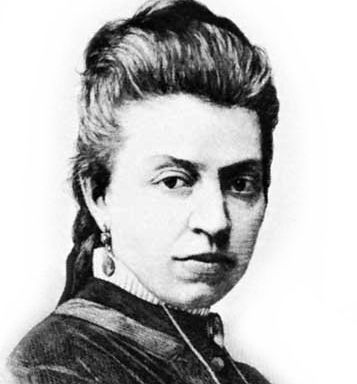She was born on 4 June 1841 in Milkowszczyzna near Grodno, in the estate of lawyer Benedykt Pawłowski who came from the wealthy family using the Korwin coat of arms. From 1852 to 1857, she was taught by Benedictine Nuns of Perpetual Adoration of the Blessed Sacrament; in the school, she met Maria Wasiłowska (later Konopnicka), a well-known writer. Having married Piotr Orzeszko, she moved to his estate in Ludwinów near Kobryń for four years; there, she engaged in educational work, establishing a rural school, among others. At that time, she also made contact with representatives of the “white” party – a moderate political environment, which competed for influence against the radical “reds”. She assisted the insurgents in the January Uprising; among others, she hid Romuald Traugutt, who was among the leaders of the insurrection, in her house. Many years later, she referred to her experiences from the Uprising in her short stories collection Gloria victis (1910). In 1869, after her marriage had been annulled, she moved to Grodno. At that time, inspired by H. T. Buckle’s determinism and H. Spencer’s evolutionism, she became an engagé writer, writing books about social problems, which were usually very schematic and built around a single thesis (Na prowincji [“Backwoods”] 1870, Pan Graba [“Mr Graba”] 1872). She was one of the first advocates of female emancipation (Marta 1873) and tackled anti-Semitism (Meir Ezofowicz 1878). In her literary manifestos, she condemned romanticism. From 1879 to 1882, she ran a bookshop and publishing house in Vilnius, which disseminated positivist ideas. After it had been closed, she was interned in Grodno for five years. She was involved in numerous charitable campaigns, including assistance for thousands of residents after the great Grodno fire of 1885. Those were the years in which she wrote her mature works, which combined realism with focus on social issues (Widma [“Spectres”] 1881, Nad Niemnem [“On the Niemen”] 1888, Cham [“Cad”] 1888, Patriotyzm i kosmopolityzm [“Patriotism and cosmopolitanism”] 1880). In the final period of her work, she focused on ethical and religious issues, opposing Narodnik and socialist ideas as well as modernists and decadents whom she blamed for “argonautism”, i.e. mass emigration from Polish lands to pursue professional careers. In 1894, she married her long-time friend Stanisław Nahorski. For most of her life, she corresponded copiously with many writers, scholars and social activists. In 1905 and 1909, she was a candidate for the Nobel Prize for Literature. She died on 18 May 1910 in Grodno.

